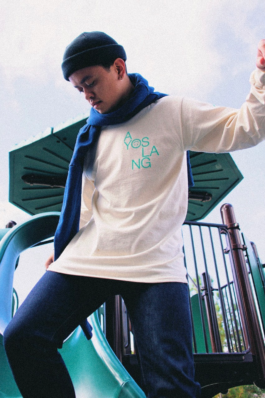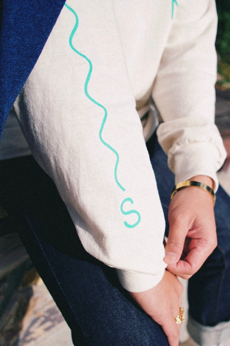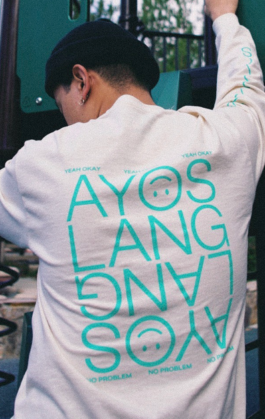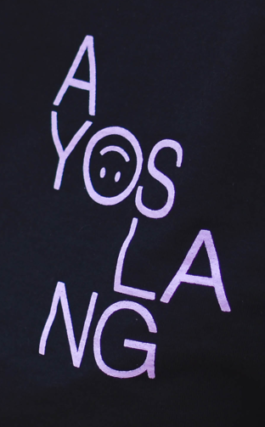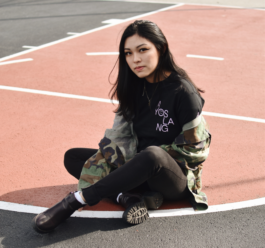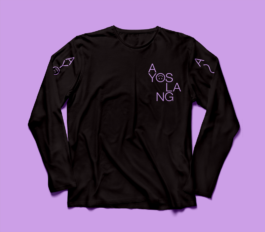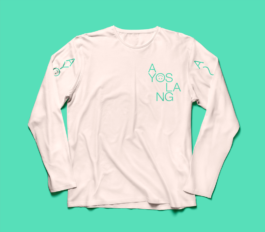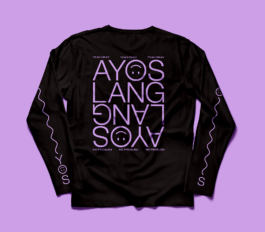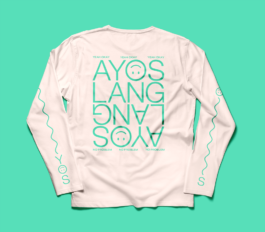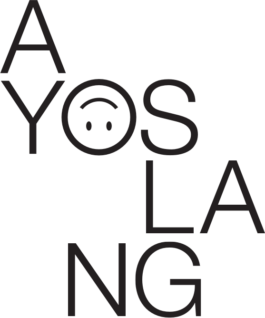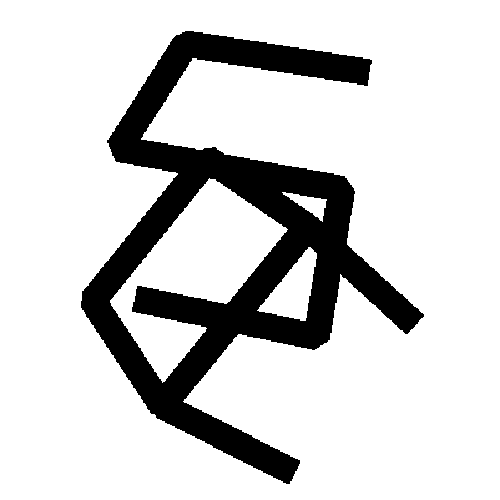Ayos Lang
2018
Apparel
Client: Mark Redito
Ayos lang” (Tagalog). The literal translation is: “just ok.” But it can also mean: “I’m good/fine/alright” or “meh.”
It’s the typical response to: “Kamusta?” (how are you), “Ayos lang.”
Not really a bad thing, but I can’t help but sometimes interpret this phrase as something automatic or mindless. It’s an ambivalent response.
That made me think about how some of us live our lives that way—on auto-pilot. Passive. “It’s ok.” “meh.” Ayos Lang.
But what if we switched frames and saw “Ayos Lang” as more about ownership and active acceptance? What if it meant, I see my circumstances, I know where I’m at. I got this. Ayos Lang.
That insight inspired my collaborator, Sherlan and I to create this piece. To serve as a reminder to ourselves that we have a choice; that we can own whatever comes our way. That we can accept where we are and not be bound by it. That we don’t have to live life on auto-pilot.
— Mark Redito
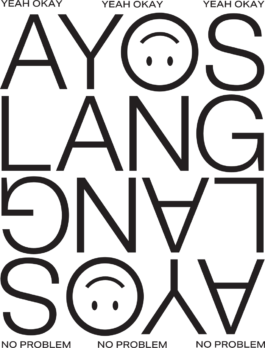
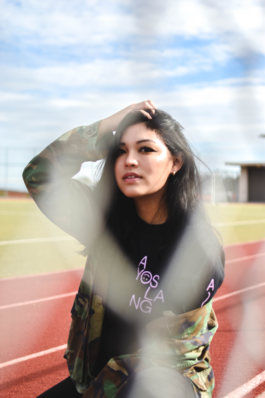

Ayos Lang
2018
Client: Mark Redito
Ayos lang” (Tagalog). The literal translation is: “just ok.” But it can also mean: “I’m good/fine/alright” or “meh.”
It’s the typical response to: “Kamusta?” (how are you), “Ayos lang.”
Not really a bad thing, but I can’t help but sometimes interpret this phrase as something automatic or mindless. It’s an ambivalent response.
That made me think about how some of us live our lives that way-- on auto-pilot. Passive. “It’s ok.” “meh.” Ayos Lang.
But what if we switched frames and saw “Ayos Lang” as more about ownership and active acceptance? What if it meant, I see my circumstances, I know where I’m at. I got this. Ayos Lang.
That insight inspired my collaborator, Sherlan and I to create this piece. To serve as a reminder to ourselves that we have a choice; that we can own whatever comes our way. That we can accept where we are and not be bound by it. That we don’t have to live life on auto-pilot.
— Mark Redito
